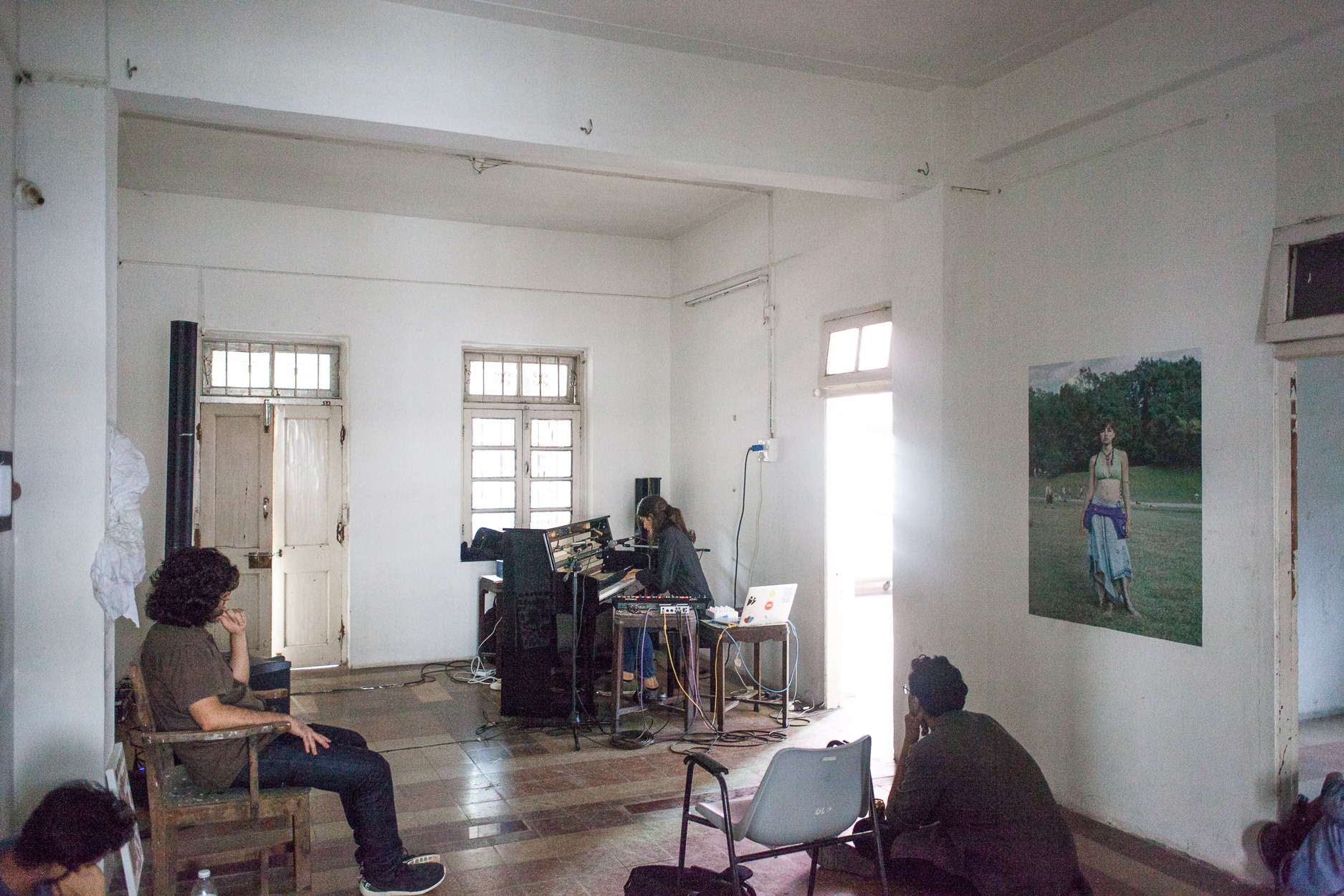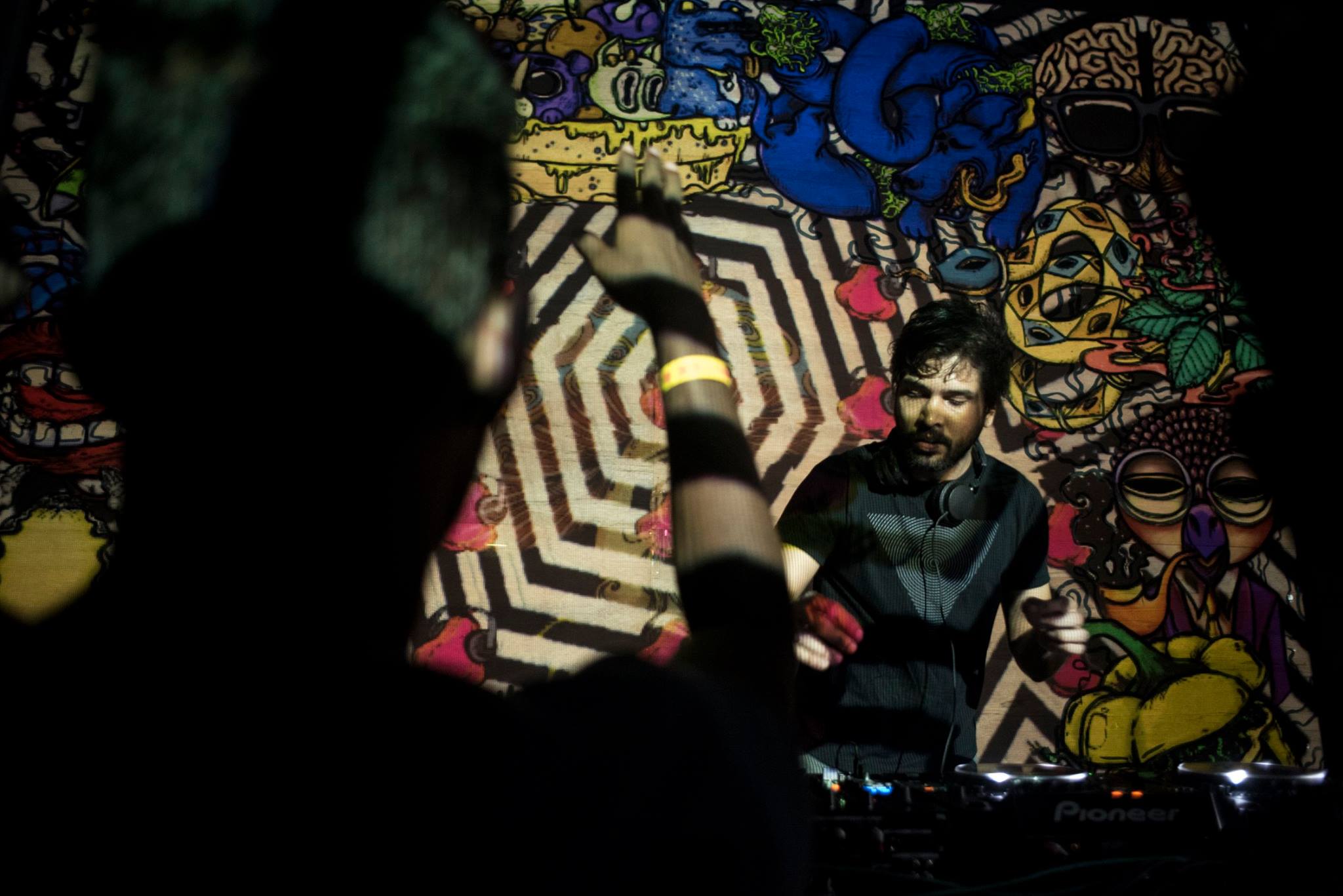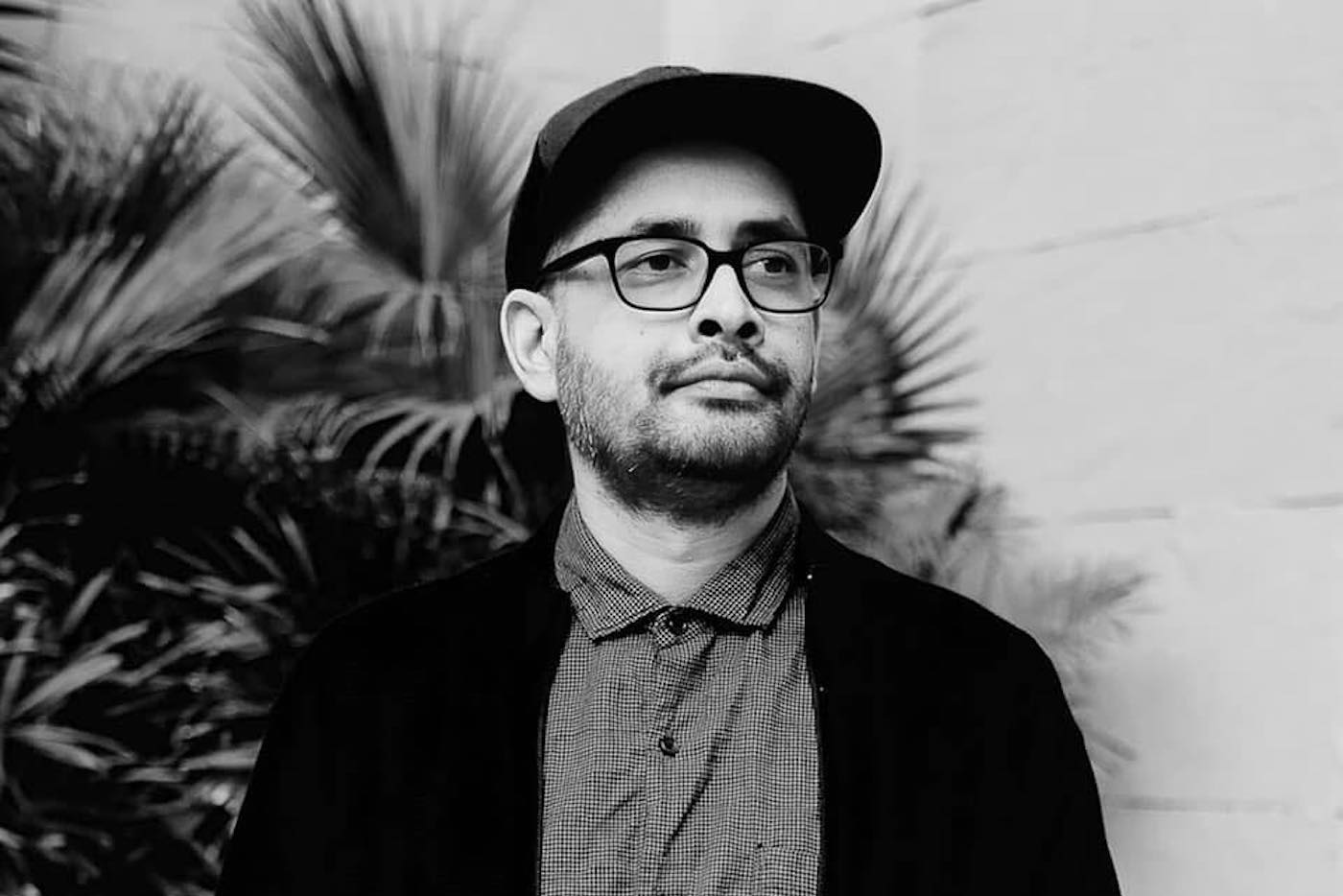The Evolving Role Of Labels In South Asia

12 November 2020
Old-timey incarnations of record labels — glitz, glamour, big money and big exploitation — are great to watch in movies, but their relevance has diminished over the past two decades. The music industry, internationally, is in a perpetual state of rebuild. And so new ways forward emerge from time to time.
In South Asia, the young, independent, non-film music communities — the ones with roots in traditional western sounds — remain on the fringes of the mainstream, if at all. They’ve grown almost as countercultures, gradually finding some footing in the culture space of the region over the past decade or so, through dedicated ground work by artists and industry-persons. In such an environment, record labels no longer play traditional roles. Instead, there’s a coexistence of multiple bespoke approaches. What we get, really, are collectives — organisations that, depending on their scale and the interests of the people involved — work within loosely defined capacities within the industry.
General wisdom dictates that the job of record labels covers the process of music production, distribution, sync, and publishing, with scouting of artists through A&R. There’s typically been a clear line between the label, artist management, and the bookings agency. But that doesn’t strictly hold true in the emerging markets of South Asia, with all three blending into one, often in an informal way without contractual obligations coming into play. While community-building is a major reason behind this, financial stability also plays its part. Album sales on their own aren’t enough for artists or labels to stay afloat, more so in the age of streaming.
 Sanaya playing at a REProduce Listening Room // Image credit Nishant Shukla
Sanaya playing at a REProduce Listening Room // Image credit Nishant Shukla
Rana Ghose, the founder of REProduce, the collective which hosts the almost avant-garde series of gigs called Listening Rooms, feels there are plenty of labels and collectives, as well as platforms (such as Bandcamp), that are doing a lot of good work in terms of releasing music. He prefers working non-exclusively on live bookings with artists who fall under the large umbrella of REProduce. “I don’t really want to have a middle-man in between. I approached it that way: give artists the freedom. If you need to move on, the stupidest thing I’d do is hold on to a contract. If I get you a commercial gig, I’ll take a percentage. If not, I won’t take anything. I’m ethically more comfortable with that.” At first, in the early years in 2013 and 14, Ghose worked mostly on international bookings. He helped out artists such as Lifafa, Jamblu and Disco Puppet.
REProduce, then, works almost like an ecosystem; “I guess we’re kind of like a brokerage entity,” says Ghose. Artists get to perform at unconventional, carefully curated venues in non-traditional setups, opening up avenues for greater experimentation, with the Listening Room gigs — which usually have an entry charge and, once the production costs are recovered, all profits split equally — featuring over 400 artists over the past five years. They don’t work as an exclusive agency, instead relying on case-by-case bookings. “We present ourselves as…not a platform. But there’s a signature of sound, where it’s jarring or surprising, with a juxtaposition of talent. There’s no genre focus as such, but more the presentation of it all as a holistic whole. We’ve made a conscious decision in presenting this identity,” he adds. There’s a focus on risk-taking. “Ultimately,” he says, “there’s a certain barrier to entry in any performative space. That was limiting the narrative, I felt. The long-term plan is, if in time you provide artistic risk that’s sustainable, then anybody can enter. We keep a reasonable entry free. I feel like there is a market for this, that people will like it. Then you might see this sphere of influence, and people adapting to it, and the opportunities arising from there. I think that’s one of the core elements of all this.”
Given the loosely defined and unorganised nature of the industry—which is more a collection of clusters and movements, rather than a consolidated entity—groups tend to take traditional industry roles and adapt and reimagine them in this space. To develop a sort of fundamental ethos and take it from there, rather than merely recreating western modes.
 Asvajit playing at Pettah Interchange in Colombo // Image credit Malaka MP
Asvajit playing at Pettah Interchange in Colombo // Image credit Malaka MP
“Looking back now,” says Asvajit Boyle, “it was just throwing shit at a wall, seeing what sticks. There was no real plan as such; it was all part of the journey.” Asvajit, Sri Lanka-based producer, DJ, and visual artist, started Jambutek Recordings, an electronic music imprint, in Colombo in 2014, at a time when that sound in the country was barely five years old, and had no meaningful cultural currency. Asvajit points to the ease of starting up such a venture, and how digital releases had broken the barrier to entry—labels could come into existence at almost no initial cost. Jambutek was a passion project for Asvajit, to help set up the foundations of a club scene in the country; turning profits was low on his list of priorities. After a smattering of early releases, he jetted off to Berlin for a year, taking stock and regathering his thoughts. It helped him widen his perspective: “I realised we weren’t as cutting edge as we thought we were. It also made me realise we could never be like the people there because it’s too different culturally; they accept electronic music in a way that we don’t here in Sri Lanka or India. It made me reevaluate what kind of music we release. I was more acutely aware of the fact that I was curating something, not just what I like. What our musical philosophy is.”
In the time since, Jambutek has perhaps helped lay down a structure for club music in Sri Lanka — “We’ve done events, workshops; we really believe in developing the scene and creating a space for people who might be interested in this stuff,” he says — though Asvajit admits that they’ve somewhat diverged from the scene there; they are focussing more on intimacy and smaller rooms over bigger clubs, while the kind of music they’re pushing is slightly at odds with the popular imagination in Sri Lanka at the moment. Musically, the label has tried to support sounds that aim to push boundaries within the electronica sphere — Asvajit and Nigel Perera, who is also involved in running the label, have released their work on Jambutek, in addition to a host of other names including Geve and Sunara — and there has always been a clear emphasis on the ‘experience’, with great attention paid to the visual elements of each release and all their communications. Jambutek has also, in its six years of existence, worked at a grassroots level, on the now-discontinued Pettah Interchange, as well as a series of artist residencies and workshops — including Sound Camp — where they support and collaborate with young producers.
Azadi Records, based in India, came into existence in mid-2017. Over the past three years, they’ve built an identity centred as much on the quality of the music they’ve been putting out — rapper Prabh Deep’s debut release, ‘Class-Sikh’, served as a sort of breakthrough moment for the label — as the politically charged voice they’ve cultivated. From Prabh Deep to Ahmer, whose highly rated debut from last year, ‘Little Kid, Big Dreams’, which documented his experiences of growing up in Kashmir, Azadi’s releases generally tend to explore the gritty political realities of India in the modern age.
 Prabh Deep // Image credit: Vaksh Vimal, Shorya Gumber & Azadi Records
Prabh Deep // Image credit: Vaksh Vimal, Shorya Gumber & Azadi Records
With the whole world on an indefinite pause, labels in the region are currently either on hiatus or trying to stay afloat. Uday Kapur, co-founder of the label and former contributor to Border Movement, tells me how, during the lockdown in India, their streaming numbers have taken a bit of a hit. “Our royalties took a 15-20% dive. We can see how listening habits have also changed; like how people can’t go to the gym so they’re not listening to up-tempo music.”
While independent labels have, in the past, largely relied on Bandcamp sales and SoundCloud patronage, mainstream streaming services like Spotify, Apple Music, or JioSaavn have emerged in the past three years or so as potential new sources of revenue. Kapur tells me how their streaming numbers rarely ever spike or dip dramatically. “Our graph has been pretty steady, upward rising. Prabh Deep has gradually grown over three years to a million streams on Spotify. The streaming side of things [for Azadi] were picking up, and after this we hope we kind of make up for that.”
One way of registering that spike is to get on to a playlist, say Rahul Giri. Giri is the founder of Consolidate, an electronic music imprint based in Bengaluru which came to life following a compilation release, “FRNDS & FAMILY 2016”. Consolidate has on its roster artists such as Disco Puppet, Pardafash, Aerate Sound, Aniruddh Menon, as well as Kathmandu-based producer Phatcowlee, who was selected for the Border Movement Residency in Berlin in 2018. There’s a stylistic singularity that runs through the Consolidate roster — while the music of the individual artists rarely overlaps, there’s a unified vision, an experimental approach, that’s easy to spot; a theme that runs through many of the collectives that have come out in the region. It’s rarely upbeat or conventionally accessible to a mainstream audience. Giri tells me how it’s important to get on to random playlists, or lists made by popular users or artists, but that they haven’t quite reached that critical mass where streaming provides a strong financial support structure to the label. In fact, Giri’s own dismissal of temporary fads in the music industry means that Consolidate functions as an outlier, doing what they believe in regardless of how the industry progresses. “All songs have their own lives. If a song has the potential to be a crossover, I’ll know and do more. But it’s important to find your place in the system as well; where does the music work? What is its place?” says Giri.
 _RHL // Image credit Zacharie Rabehi
_RHL // Image credit Zacharie Rabehi
While a second ‘FRNDS & FAMILY‘ compilation came out recently, the label has largely steered clear of putting out multiple collaborative releases, instead concentrating on individual offerings by its artists. In contrast, Jwala, a young collective of producers in Mumbai, began life in 2017 through monthly compilations. The music industry has, globally, struggled to find a way to support its artists for years; this region, too, comes with unique challenges that a developing scene naturally faces. More often than not, the motivation is creative, stemming from a love of music and the need to present your voice, than financial. In the case of Azadi, Kapur tells me how they overreached when they first started, taking on more artists and work than they could handle. “We kind of bought into the hype. We were barely even a team until four or five months ago. The overreach also helped though; it showed us what our limitations are. We’ve been paying for those mistakes, trying to rein it back in to keep it going.” Azadi has mostly been recognised as a hip-hop label, but they’re trying to create additional verticals which can fund their more passionate pursuits. “To keep it going,” says Kapur, “you need additional sources and regular sources of income.” They’ve been working with DJs, and, following a podcast they collaborated on, have been trying to get into the content-creation space and open up new audiences. He understands that, as artists develop and become popular, they will outgrow the scale at which Azadi functions and that there’s a need to find a balance between growth of their artists and the nature of the environment they offer; Giri, too, speaks of how Consolidate has, over the years, almost served as a space for artist development and refinement of talent.
There’s a place for different kinds of styles, philosophies, and approaches as the industry expands and newer audiences come in. Brands have been pumping money into independent music for a few years now, trying to capitalise on the wave — in fact, a chunk of Azadi’s royalties come from branded content. And there remain platforms that support indie movements. For instance, Giri talks of a joint showcase gig featuring artists from Consolidate and Forever South, held at Magnetic Fields in 2015, being hosted by Border Movement and Thump.
Consolidate works more as an imprint than a regular label, with Giri assisting in the direction of the music, as well as the production, promotion, and distribution for it, splitting the profits. Azadi has a standard contractual arrangement with all its artists, assisting in production, publishing, distribution, marketing. While published music has its place, labels here generally tend to survive through live bookings and artist management. Azadi has separate deals with its artists for management and bookings; Giri on the other hand encourages Consolidate artists to, in fact, seek outside agencies and support for bookings, helping out with live gigs as and when he can on a piecemeal basis.
All across the subcontinent, different movements and scenes have been brewing over the past decade. One of the most prominent ones among them remains Forever South (FXS), bringing together exciting new sounds from Pakistan. It began life back in 2012, when two young producers in Karachi, Dynoman, or Haamid Rahim, and RudoH (aka Bilal Nasir Khan) came together to start it. The first few years, as Rahim mentioned in a previous interview, were spent setting up collaborations and hosting shows in Pakistan. From there, they broadened their horizon and began to focus on international territories. Their roster spans a range of electronica sounds, and features artists such as TMPST, Tollcrane, Eridu, Al Ak. Currently on a bit of a slumber, FXS has over the years become a great space for discovery. That remains a somewhat incalculable quality — given the scattered nature of multiple musical movements converging here, labels act also as a point of discovery, where fans can trust a label for its curation as much as its actual ground work. Further, artists from the subcontinent have been gaining international recognition steadily over the years. In 2016, a collaborative album called ‘Karachi Files’ was released, following a SoundCamp residency, initiated by Gebrüder Teichmann. Artists from Forever South and the Teichmann brothers spent two weeks in a house in Karachi, working day and night on music, finally culminating in the album, as well as a series of gigs in Germany. Each year, the Border Movement Residency has enabled a free exchange of ideas between Asian and German artists through its two-month long residencies.
Giri tells me about Sound Lab Dhaka 2013, where he, along with other artists from the region, visited Dhaka, Bangladesh and conducted workshops and worked with young producers from Bangladesh over a period of five days. Bangladesh, too, has an exciting independent circuit, with labels such as The Mothership Records, Akaliko Records, Tugboat, and Electro Records pushing indie music over the years.
The scene in the region has been propped up by a range of collectives and labels, each functioning within the constraints of a small industry and evolving to meet the needs of the industry. In India, labels and organisations such as Qilla Records, Gully Gang Records, Pagal Haina, Boxout.fm, among several others, have all contributed to the non-film music community. Serendeep, a young label in Sri Lanka, has been active in the underground electronic space.
There are obstacles of course; Giri speaks of how Consolidate has chosen not to hire anyone to work on social media, and how frustrating the process of dealing with algorithms and social interaction can be. They’ve taken the decision not to seek out mainstream validation and let the sanctity of the music guide the process. He enjoys the process, but it’s not without challenges. “The numbers… you obviously want a lot more people to hear you. But then you have all these self-imposed limitations; all those tussles and contradictions.”
Money, of course, remains a constant problem. The revenue from album sales and streams is limited at best, with branded content and sponsored or ticketed events being the main source for most artists and agencies. Ghose, an economist by training, says: “I had a thought that, inherently, the music industry is unsustainable. We can see now — it’s an example of how precarious the whole thing is. When it works, it works. But when it doesn’t, it just falls apart.” As ever, there’s a push-pull between art and commerce, but it’s comforting to know that, as the music industry in the subcontinent comes into its own and expands, there are enough voices out there with integrity and love for music.”
Written by Akhil Sood
Image: Sunara at Jambutek Showcase, courtesy of Malaka MP
Originally posted on Border Movement on 05 October, 2020.
 Sanaya playing at a REProduce Listening Room // Image credit Nishant Shukla
Sanaya playing at a REProduce Listening Room // Image credit Nishant Shukla Asvajit playing at Pettah Interchange in Colombo // Image credit Malaka MP
Asvajit playing at Pettah Interchange in Colombo // Image credit Malaka MP Prabh Deep // Image credit: Vaksh Vimal, Shorya Gumber & Azadi Records
Prabh Deep // Image credit: Vaksh Vimal, Shorya Gumber & Azadi Records _RHL // Image credit Zacharie Rabehi
_RHL // Image credit Zacharie Rabehi